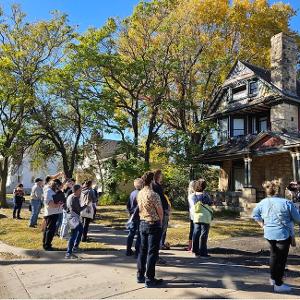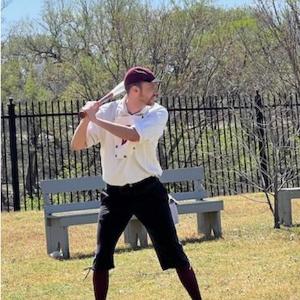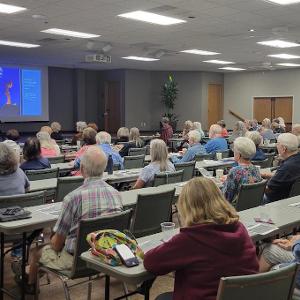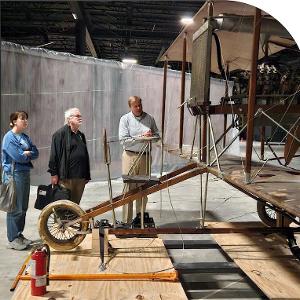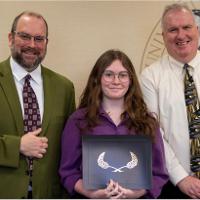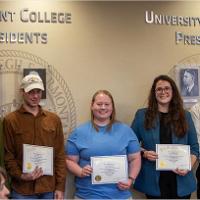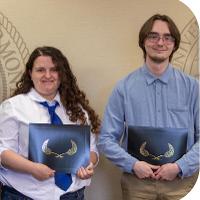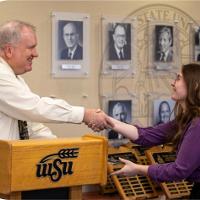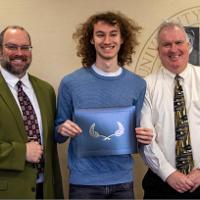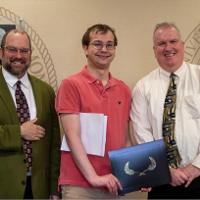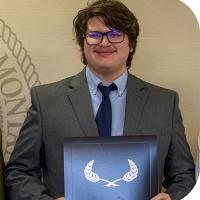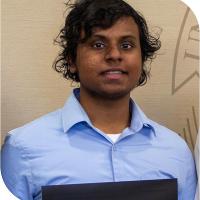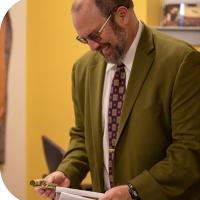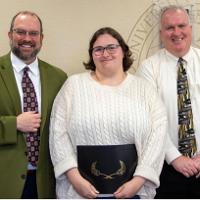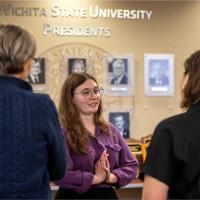From The Chair
“Nothing endures but change.” – Heraclitus
As the new photo at the bottom of this message signals, there has been a change in the chair’s position for the department. I am George Dehner, and I am taking over the seat after Robert Owens’ one-year acting role, which he took over for Jay Price after twelve years at the helm. Robert kindly volunteered for the interim role so that I could continue my work on my Legionnaires’ disease manuscript. The chair is only one of a number of changes in the department. We are delighted to announce we are adding Cheryl Golden to our department mix. Cheryl comes to us from Newman University, and she will be offering ancient history courses as well as reactivating some of our medieval history courses. Our students and we are glad to have her. Welcome aboard, Cheryl! The department is also currently undertaking searches for both a geographer and a Latinx historian. We plan on having two new scholars added to our faculty by next year.
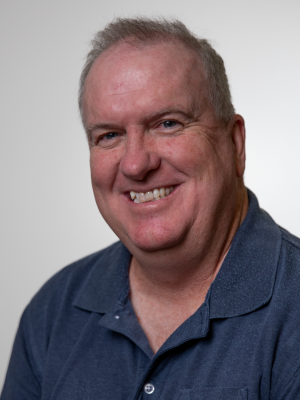
Change, however, is not just an additive function. I am both happy and sad to announce that John Dreifort and Keith Pickus will be retiring this year – Keith after the fall semester and John after the spring. Combined, John and Keith have an astounding 84 years of service to the department. More than just longevity, John and Keith have shaped not only the department, but the university as a whole since both served in high administrative positions in the past. In addition, Jan McKown, our long-time office coordinator, retired in October. While sad to no longer have them around to liven up Fiske Hall, we are happy for them in their new, well-earned roles. While none can be replaced, the department looks forward to welcoming John Keckeisen to the post of administrative assistant. Coincidentally, both John and his father, Bob, took courses from John Dreifort, and Bob served as an instructor in the Public History Program.
The challenge with change is that you want to be able to grow and evolve, but not lose sight of those core elements that have made the History Department special. We have prided ourselves on our high standards for both research and teaching, as well as providing valuable service to the university and community. Fortunately, we are well-positioned to continue that important work. Some examples of our continued commitment include Robert Weems, Jay Price, and our colleague Sue Abdinnour from the business school finishing their project, “Wichita Nonwhite Business Owners Tell Their Stories,” part of the “Stories for All: A Digital Storytelling Project for the Twenty-First Century”; Robert Owens’ new book, “Killing Over Land: Murder and Diplomacy on the Early American Frontier” (University of Oklahoma, 2024); and Laila Ballout’s manuscript, “Saving Lebanon: Human Rights, Ethnic Politics, and Religion in the Reagan Era,” which is currently in development. To our department supporters, I invite you to join me in welcoming our new colleagues and wishing all the best to our friends as they move on to their new facets of their journeys. We do not know exactly what course the ship of history will trace, but if we keep our eyes on the north star of the department’s values, we will be heading in the right direction. All these changes make me recall the wisdom of the Byrds: “To everything (turn, turn, turn), there is a season (turn, turn, turn).”

GEORGE DEHNER
Chair
Department of History
Reflections on Retirement
Now in my 55th year of teaching at WSU, I’ve decided that it is a good time to retire from full-time teaching. I retain my fondness for Clio’s Correspondence, which I initiated back in 1986 while serving as chair of the department.
In my first letter to our alumni, I indicated that the department had beaten back the “‘history is not relevant’ detractors of the 1960s,” and was busily doing battle with the “‘history does not pay’ critics of the 1980s.” The battle continues! I believe that I have benefited from and stood on the shoulders of great colleagues in the department.
It has been a great ride with them; my current colleagues continue the department’s tradition of delightful collegiality, productive scholarship, splendid service, and outstanding teaching. I am grateful for their friendship and professionalism.
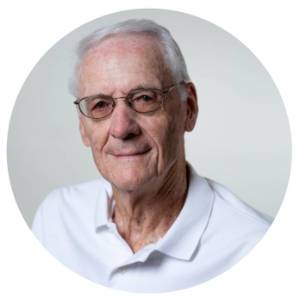
Of course, it is the relationships with students that have made my career at WSU so rewarding, and, yes, so much fun. Every day seemed to produce an interesting, even wacky, development. Many former students have become treasured lifelong friends. Over the years, I have looked forward to each class because of the inherent enthusiasm displayed by many (some of whom even laughed at my bad jokes and puns!), their inquisitiveness, and their knowledge.
Yes, I often encountered ideas and information from them that crept into my lectures and discussions as I tried to recreate the exciting world of the past (and maybe that’s why my lectures got longer and longer!). I continue to hope that I was able to sneak a little history into my students relatively painlessly, and that it will serve them well for a lifetime of personal, professional, and community success and enjoyment. By their fascinating examples, they will continue to supply the best answer to the often-asked question, “But what can I do with a history major?” I continue to revel in their successes and hope that they will continue to keep in touch in the future.
My plans include finishing some writing projects that kept being put on the back burner, continuing to serve in community organizations like the Wichita Committee on Foreign Relations, and teaching an occasional course in the Community Education Program. I’ll probably be seen prowling around Ablah Library seeking an obscure source or exercising at the Heskett Center trying to keep Father Time at bay.
New Faculty Member
Following a national search this past spring, Cheryl Golden was hired as the department’s associate professor teaching in ancient history. A graduate of the University of Houston, (B.A., M.A.) and the University of North Carolina, Chapel Hill (Ph.D.), she will teach courses on ancient and medieval history, an area that has been underserved for a number of years. Prior to Wichita State, Cheryl worked at Newman University, where she engaged in team teaching, grant writing, first-year student program building, and study abroad. She won awards at NU for teaching excellence, advising, student retention, and faculty research. Cheryl led a team of faculty to write and win two major grants with the National Endowment for the Humanities (NEH).
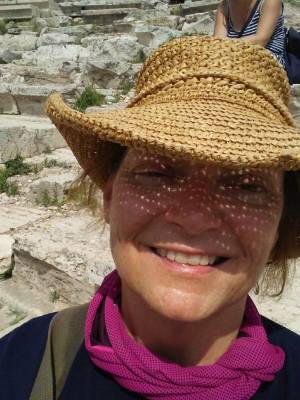
She has served on local museum boards, is a past president of the Kansas Association of Historians, and currently serves as treasurer for the Association of Ancient Historians.
Golden’s teaching philosophy is about relationship building. In her teaching philosophy she notes, “I believe that all of us have a story to tell. Some of our stories are longer than others! But in ancient history classes, we can combine history and storytelling. A welcoming atmosphere in the classroom – whether it be virtual or face-to-face – can encourage students to share their own stories. We can take advantage of the diversity inherent within our classes.
"Students from around the metro and around the globe, representing various age demographics, different language backgrounds and ethnic origins enrich the room and our purpose. If we can build meaningful relationships with one another, we can build a meaningful relationship with our past.”
Local and Community History
Over the past year, the Local and Community History Program has seen students and alums engaged in a wide variety of ways. Current students in the program, working through the Society of Public Historians, have continued the tradition of adult education walking tours that attract sell-out crowds. Their initiatives vary from the Spanish translation of the “Luke the Longhorn” graphic novel series to local documentaries to the Wichita LGBTQ+ photo history project. This spring, a group went up to Topeka to do research at the Kansas Historical Society.
As with our students, our alums are truly varied in their activities. Some have pursued a traditional academic path, as with Dr. Ben Hruska, who has just accepted a position at the University of Texas, Rio Grande Valley. Others work with museums and historical societies and archives. Some are on staff, and others do special projects, such as Donn Rae Pearson and her traveling exhibit “The Women of Brown,” focusing on the women who were behind the Brown vs. Board of Education case. That said, many of our students have careers and paths that don’t fit the standard model. Consider Jim Crawley, who pursued an acting career after WSU, or Avery Marshall, who has made a name in Tulsa, Oklahoma, as a musician. Barb Myers went on to become a records manager for the North Carolina Utilities Commission. Jillian Overstake Forsberg established the Dress Gallery bridal and menswear shop before launching her writing career with the debut of the historical fiction novel, “The Rhino Keeper.” Having been the director of the Kansas Sports Hall of Fame, Jordan Poland is now a community engagement specialist for the Credit Union of America. Katy Eddins is now an associate governmental program analyst at Caltrans in Sacramento. These are just a few examples of what our alums are up to. As is evident, success in local and community history takes many forms!
Blast from the Past
Richard Welch ’70 sent the department photos from his time as a teaching assistant with the note, “Both were taken in what was then the T.A.s’ office on the second floor of Fiske. The room was the last on the northeast.”
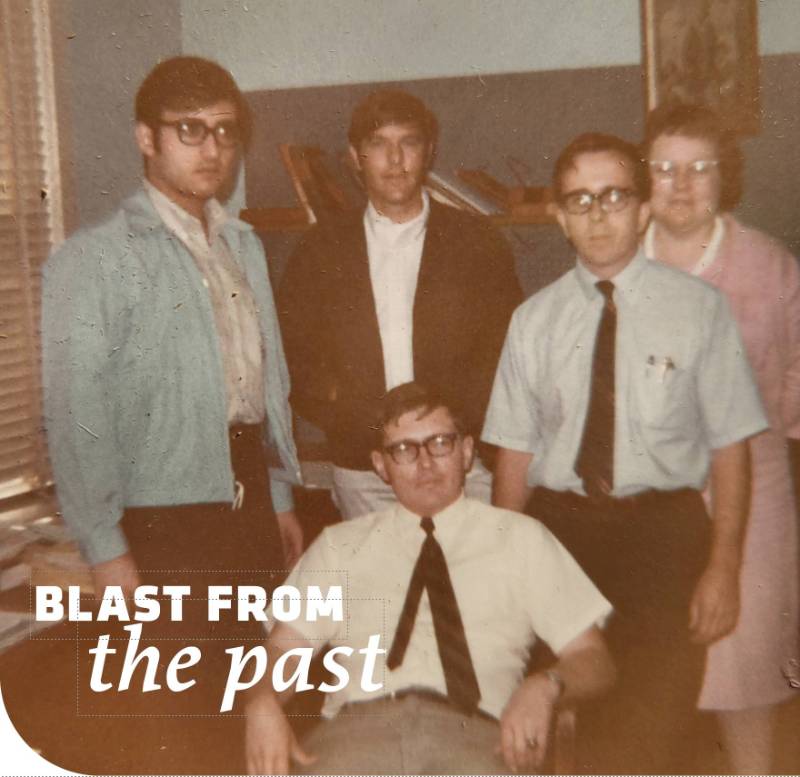
Pictured left to right: Joe Gambone ‘67/69, Ron Koksal ’68, Mike Heaston ‘66/69 and Gen Woods. Seated is Ed Berger ‘67/69.
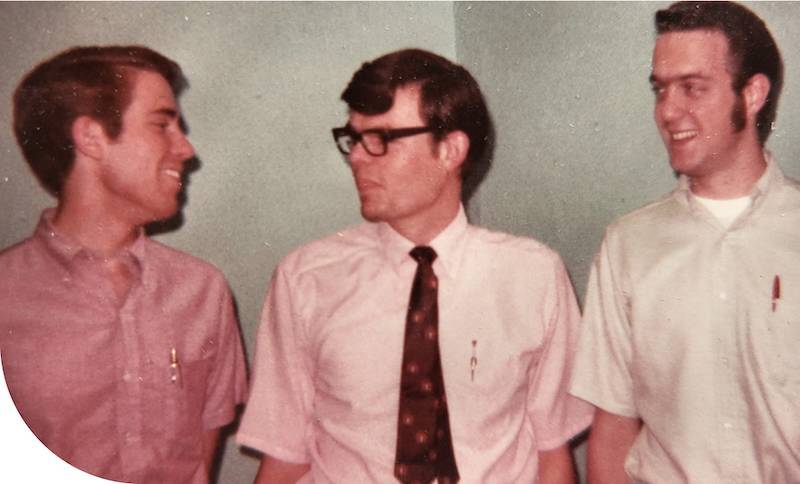
Pictured left to right: Bill Sloan ‘68/71, Mike Sievers ’71, Bob Duncan ’70.
Faculty News
Laila Ballout
Professor Laila Ballout has devoted much of 2024 to writing her manuscript, “Saving Lebanon: Human Rights, Ethnic Politics, and Religion in the Reagan Era.” She presented and workshopped chapters of her book at several conferences this year. In April, Laila attended the Arab American Studies Conference in Dearborn, Michigan, which featured, unquestionably, the best food and coffee she’s ever had at a conference.
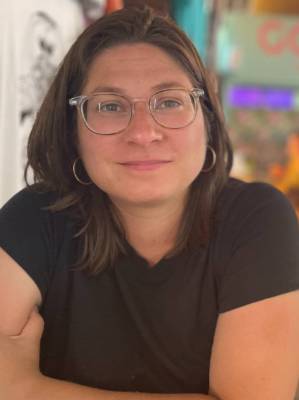
In June, she visited Toronto for the first time for the Society of Historians of American Foreign Relations and marveled at the small black squirrels that charmingly haunt the trees of the city. In September, Laila presented at a workshop entitled “Palestine in the Americas” at the Moise A Khayrallah Center for Lebanese Diaspora Studies at North Carolina State University. She is immensely grateful for those opportunities to receive feedback on her work.
Ballout has greatly enjoyed working closely with WSU graduate students as the coordinator of the History Graduate Program and with undergraduates as the advisor to the International Studies Program.
In the classroom, she’s excited to be teaching courses on many aspects of U.S. foreign policy. Students have been especially engaged and thoughtful in deliberating the history of U.S. foreign policymaking in the past year. Laila continues to enjoy teaching the second half of the U.S. history survey course.
George Dehner
A new year brings new challenges. In August, George transitioned into the role of department chair, assuming the post from Robert Owens, who agreed to serve as acting chair for a year as George worked on his Legionnaires’ disease manuscripts (thanks, Robert).

In addition to rounding the manuscript into shape for submission to an academic press, George contributed a chapter on the CDC investigations and public health law for a manuscript currently under review. He also served as referee for two book manuscripts and for a grant submission.
New changes came on the home front as well as Brendan (the oldest) moved to Stillwater, Oklahoma, as part of a one-year transition program at Oklahoma State; Patrick (the middle) graduated from Kansas State University; and Sean (the youngest) began his second year at Wichita State. George and Jodi sadly bade good-bye to Trooper in February and welcomed Gunner into the household in June.
George looks forward to working with the eager students in their undergraduate and graduate courses and maintaining the high standards for the chair position set by his predecessors.
Jeff Hayton
Last year, Jeff Hayton returned to WSU after a year-long sabbatical in Germany. Teaching many of his usual classes on modern European history and popular culture, he greatly enjoyed being back in the classroom, even if he sometimes wished he had a little more free time. In addition to his teaching responsibilities, he began to organize all the materials he had collected during his sabbatical for his new book on climbing in East Germany, “Socialist Summits: Mountaineering in the German Democratic Republic.”
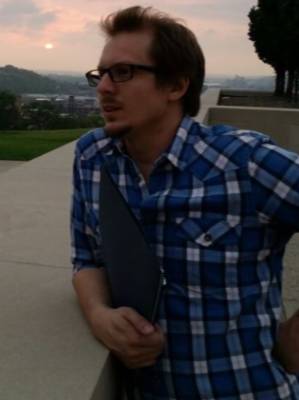
This summer, he was back in Germany, thanks to a grant from the DAAD, for the last bit of research: He interviewed 30 old climbers and spent some time in the Alps for… research. He has just begun writing Chapter 1 and hopes to have the entire book drafted by next year.
The past year also saw great progress on several projects that he has been working on for several years now. Most of the writing, proofreading, and copy editing of a collective volume called, “Socialist Subjectivities: Queering East Germany under Honecker,” is finished and the manuscript is going into production. Appearing in 2025 with the University of Michigan Press, this book seeks to revise our understandings of East German history by looking at typical events askance. In addition to this book, next year will also see several articles published, such as one on East German mountaineering expeditions to North Korea in the 1980s in German Studies Review.
Jeff is looking forward to a year filled with conference presentations and furious writing, and he hopes that, despite all the work, he still gets the chance to go for a walk with Silvia and Mago in College Hill Park every once in a while.
Robin Henry
During the 2023-2024 academic year, Dr. Henry continued her roles as chair of the department of Women’s, Ethnicity, and Intersectional Studies (WEIS). Beginning in fall 2025, the department will transition into an academic program with a field major and minor. She will transition to director of the WEIS Program and continue to be an active member of the WSU History Department.
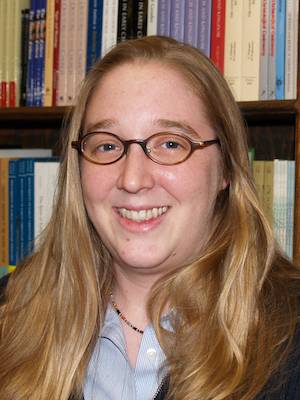
Dr. Henry presented a paper at the National Women’s Studies Association annual conference in 2023 and is chairing a panel at the Western Historical Association annual conference in October 2024. The panel is comprised of M.A. history students who wrote papers on gender and sexuality frontiers in U.S. history in Dr. Henry’s fall 2023 seminar class. She was also interviewed for the podcast "Reproductive Rights" in the 21st Century for the “Kansas after Roe” episode and served as a contributing member of the KMUW commentary series, “Past and Present.” She also continues to serve as a member of the Board of Trustees for the Wichita-Sedgwick County Historical Museum.
For her research, Dr. Henry returned to the Library of Congress in Washington, D.C. and traveled to the special collections at the University of Michigan. She is currently working on a journal article, “Years of the Living Dead: Zombie Laws, Legal Dormancy, and the Contingent Rights of Sexual Minorities,” for Law and History Review; a chapter on Ben Lindsey and sex education for an edited collection; essays on masculinity in the American West for art faculty Jennifer Rey’s photography book, “Shouting Fire”; and a book-length manuscript on Benjamin Barr Lindsey. Finally, she continues to be an active member of her online writing group and is busy planning a second writing retreat with several colleagues at other institutions who also explore questions of gender, sexuality, and power.
Helen Hundley
Cold War politics limited the study of Russian history until the 1990s. Even then, access to archive and library materials came in pieces. While a significant amount of understanding of Russian history, from Medieval Russia to the present, has been possible due to this access, even more is developing.
As we prepare to enter the second quarter of the twenty-first century, greater emphasis on the ethnic and historic cultures and kingdoms of the periphery of the Russian Empire and the Soviet Union have seen greater emphasis. In the international political arena, the former western periphery of the Soviet Union is of great interest.
Dr. Helen Hundley and her colleagues focus on the peoples of the borderlands in Inner Asia. The Buriat-Mongols and the Turkic peoples are found on the borders of Mongolia.
During the Russian Empire, the territory to the south was ruled by the Chinese Empire. Their cultural and political relations with the Russian Empire say much about both modern issues and the functioning of the Russian Empire.
Hundley’s research focuses especially on Buriats in the nineteenth century.
Robert Owens
Dr. Robert M. Owens served as the interim department chair for 2023-2024. (His proudest achievement was facilitating the campus appearance of veteran character actor Barry Corbin.)
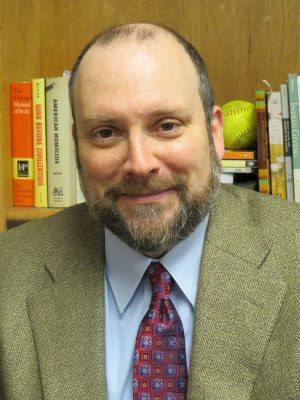
He would like to thank Jan McKown for her invaluable aid in his chair endeavors and wishes her the best for her retirement. Owens enjoyed teaching his courses this past year, especially Colonial America and the Survey of American Indian History. He also appeared on Tyrel Eckelson’s, “The Interlocutor,” podcast to discuss William Henry Harrison.
In pursuit of his next research project concerning death and remembrance in early America, Owens undertook two research trips. Over spring break, he visited cemeteries and historic sites in Kentucky, West Virginia, Virginia (including Colonial Williamsburg), and North Carolina.
In July, he drove through Ohio, Michigan, lower Canada, and New Hampshire, with the Plains of Abraham in Quebec City being a particular highlight.
His latest book, “Killing Over Land: Death and Diplomacy on the Early American Frontier,” was published by the University of Oklahoma Press in February of 2024.
Rannfrid Lasine Thelle
Rannfrid Lasine Thelle directs the Religion Program, housed here in the History Department. In the past year, the Religion Program offered a new course, “Race and the Bible.”
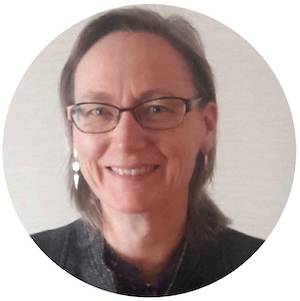
Rannfrid Lasine Thelle
The student group worked hard to tackle challenging but timely questions to contribute to the class, making this class one to repeat.
On the research front, Rannfrid has been working to finalize a long-term project about the impact of Assyriology on biblical studies, “Mesopotamia and the Bible.”
Over the summer, she took a brief break from that project to travel to Jerusalem and begin preparing for a new project featuring the archaeological site called, “The City of David.”
Jay Price
Having stepped down as chair in 2023, Jay Price turned his attention to a sabbatical in 2024. The main focus has been a biography of Governor John Carlin, who served as governor of Kansas from 1979 through 1987. A major part of the research has included some 30 interviews of individuals who knew and worked with Carlin. History student Sandra Hain has helped transcribe these interviews. Price also received an URCA grant to fund research at the National Archives in Washington D.C. to study Carlin’s work as Chief Archivist.
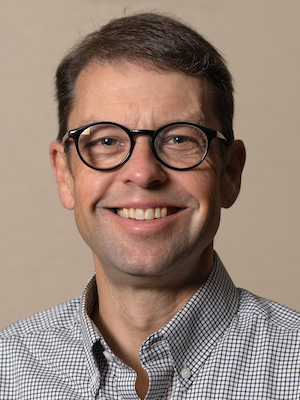
The sabbatical also afforded time to work on a second significant book project, namely a photo history of the Wichita LGBTQ+ community, created with WSU history students and to be released in time for Pride 2025.
For Price, 2024 also saw the conclusion of several projects. One was an oral history of ethnic entrepreneurship with the department’s Dr. Robert Weems and Dr. Sue Abdinnour from the Barton School of Business. Another is a survey of ethnic entrepreneurs to appear in Great Plains Quarterly. In addition, the spring of 2024 saw the release of a Spanish language version of “Luke the Longhorn” graphic novel series. This work, “Las Vivencias de Lucas Torito,” debuted at an event at the Evergreen Library. Moreover, he has been active as the regents’ designee to the Kansas Commission for the U.S. Semiquincentennial.
It was a good sabbatical, and now Price is ready to continue these efforts into the future and resume classes in local and community history. For more information on the LGBTQ+ photo history project; Stories for All: Wichita Nonwhite Business Owners Tell Their Stories; or the U.S. Semiquincentennial, follow the links below!
LGBTQ+ Wichita History Project
Stories for All: Wichita Nonwhite Business Owners Tell Their Stories
Keith Pickus
After 29 years at Wichita State University, Keith Pickus will retire at the end of the fall 2024 semester. Keith arrived in August of 1995 as a newly-minted assistant professor of European and German history after teaching at the University of Washington where he earned his Ph.D. in 1993 and immediately following a one-year visiting professorship at Montana State University.
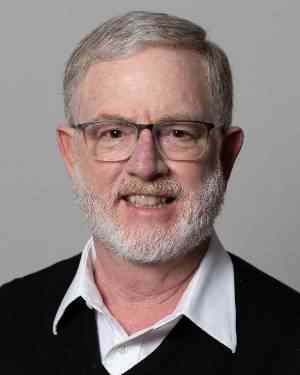
Shortly after he was tenured and promoted in 2001, he began what would become a 19-year stint as a university administrator that lasted until 2020, when he said farewell to the ‘dark side’ and returned full-time to the History Department.
This fall he will teach the Holocaust course for the last time, which is fitting given it was the first university course he taught in 1991. Keith takes great pride in the course’s evolution and ability to make the material relevant to multiple generations of university students. He will also teach his freshman seminar called “Fact, Opinion, and Why They Both Matter,” a class that examines the historical background to contemporary events and evaluates the accuracy of how news is presented in the media.
Keith is tremendously appreciative of the department and the university for allowing him to carve out what has been a unique and incredibly rewarding academic career.
Robert Weems
During the past year, Professor Weems engaged in many professional activities above and beyond teaching his classes.
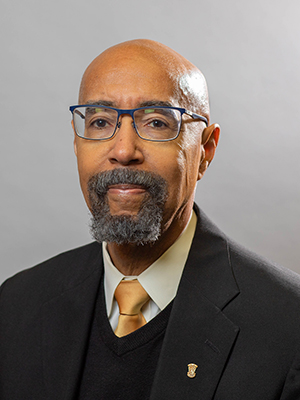
On January 11, 2024, Weems had the distinction of being the keynote speaker for the Governor’s Martin Luther King Program in Topeka. His presentation focused on the final year of Dr. King’s life.
During February 2024, Black History Month, Dr. Weems spoke at the Wichita Public Library on the topic, “Celebrating Wichita’s Black History: The Wichita African American Business History Project.” Later in the month, he spoke at Prairie View A&M University in Prairie View, Texas, on the African American Business History Project. Prairie View is building an oral history concentration and Professor Weems’s presentation provided insights regarding the dynamics of conducting an oral history project.
February 2024 also featured Professor Weems’s return to the airwaves of KMUW, Wichita Public radio. Weems, along with History Department colleagues Drs. Robin Henry and Jay Price, had previously provided commentary through a program entitled “Past & Present.” In early 2020, with the rise of COVID-19, “Past & Present” was suspended from KMUW programming.
As mentioned in previous issues of Clio’s Correspondence, Professor Weems, along with WSU colleagues Drs. Jay Price of the History Department and Sue Abdinnour of the Barton School of Business, has been working on a grant-funded project since 2020 entitled, “Wichita Nonwhite Business Owners Tell Their Stories.” On April 20, 2024, the research team discussed their project at a forum/story-telling festival in Lawrence, Kansas.
Finally, on June 27, 2024, Professor Weems was a keynote speaker for a Fatherhood Summit hosted by the Sedgwick County Health Department. The title of his presentation was, “Fatherhood in the African American Community – A Complicated History.”
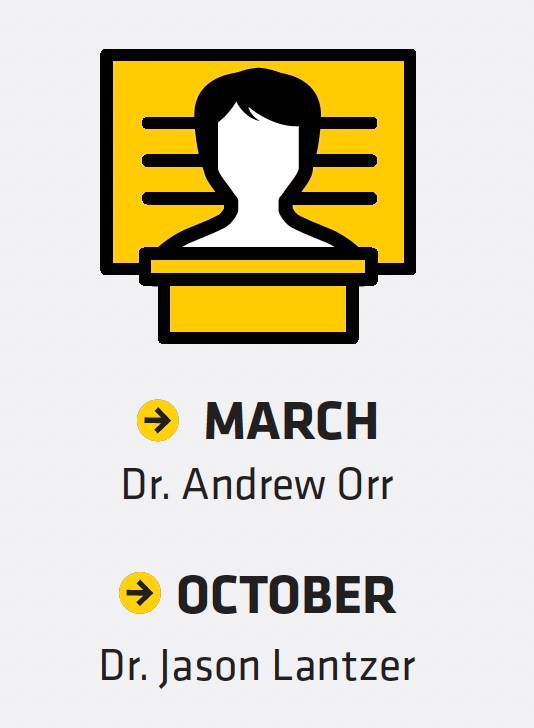
History Department Lecture Series
The History Department Lecture Series hosted two wonderful presentations in 2024. In March, Dr. Andrew Orr, professor of history and director of the Institute for Military History, lectured on, “The Gay Girl in Damascus: Stolen Identities, Western Progressivism, and the Arab Spring.” In October, the History Department welcomed Dr. Jason Lantzer, assistant director of the University Honors Program at Butler University, to campus to deliver a talk, “What We Fight Against: Dwight Eisenhower and the American Discovery of the Concentration Camps,” based on his book, “Dwight Eisenhower and the Holocaust: A History,” published through De Gruyter Oldenbourg Press in 2023.
German Universities Under the Nazis and The Betrayal of the Humanities
Last fall, Rannfrid Thelle and Keith Pickus organized a special panel discussion event entitled, “German Universities under the Nazis and the Betrayal of the Humanities.”
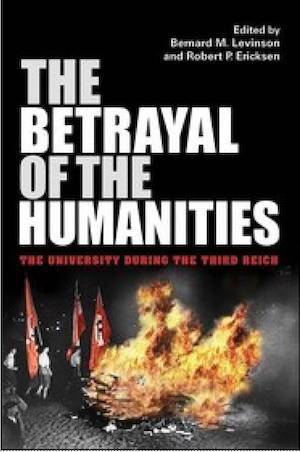
Keith moderated the discussion, and panelists included Jeff Hayton and Rannfrid Lasine Thelle from the History Department, Jeff Hershfield from philosophy and Jens Kreinath from anthropology.
Each presenter delivered comments responding to a chapter in the book, “Betrayal in the Humanities: The University during the Third Reich,” edited by Levinson and Ericksen (2022).
Drawing from both the university and community, more than 80 people attended the presentation that was held in the Marcus Welcome Center. The audience was fully engaged and participated in a lively discussion.
The ongoing challenges to higher education, from authoritarian movements to ban books and direct university curricula to the rising volume in discussions of antisemitism and racism, contributed to the conversation. But these issues became acutely timely in ways the organizers could not have foreseen following the October 7 Hamas attack on Israel and subsequent Israeli war against Gaza.
Fall 2024 Scholarships
In 2023-2024, we were able to provide $19,000 in funding for paper awards, scholarships, fellowships, and student support for graduate and undergraduate students.
Paper Awards
Undergraduate
- Douglass Bendell Award in Research and Writing - Sabrina Sherrow, “Canada’s Home Front”
Undergraduate
- John Rydjord Jr. Award – Justin Highbarger, “Greece’s Smooth Return to Democracy”
Phi Alpha Theta
- Kind Shepherd – Allison Johnson, “The Harpe Brothers”
Graduate
- Fiske Hall Seminar Award – Allison Johnson, “The Devil’s Allies”
Graduate
Fiske Hall Non-Seminar Award
- Niklas Erwin, “The Link Between Trade and Diplomacy”
- Braylea King, “Okay Ladies”
Undergraduate Scholarships
- Lee and Helen Kamen Scholarship – Jesse Pina
- Bill and Donna Ard Endowed Scholarship – Cassity Sutton
- John Edward “Jed” Hurley Jr. Award – Ephraim Morris
- Dr. Henry and Minnie Onsgard Scholarship – Allison Waldt
- Suellentrop Family – Grace Boman
- Dr. James Stewart Jr. Memorial Scholarship – Devan Hughes
- Decker-Kansas Society of DAR Award – Maleah Evans
- Russell “Jiggs” Nelson Scholarship – Zachary Howard
- Marie Graham Memorial Scholarship – Quinton Phelan
- Virginia Mae Gardner Scholarship – Fall 2023, Andruw Hoopes; Spring 2024, Ramith Umange
Graduate Fellowships
- Anthony and Dana Gythiel Endowed Scholarship – Eric Blonigen
- John Rydjord Award – Christen Brouillette
RESEARCH STUDENT SUPPORT
- Miner/Unrau Graduate Research Award – Spring 2024, Allison Johnson and Niklas Erwin
- William and Ruth Heaston PAT, Gamma Rho Chapter Student Support Fellowship – Bowen Hou
On behalf of the History Department, thank you to our generous friends and alumni, without whom these deserving students would not have the same support.


